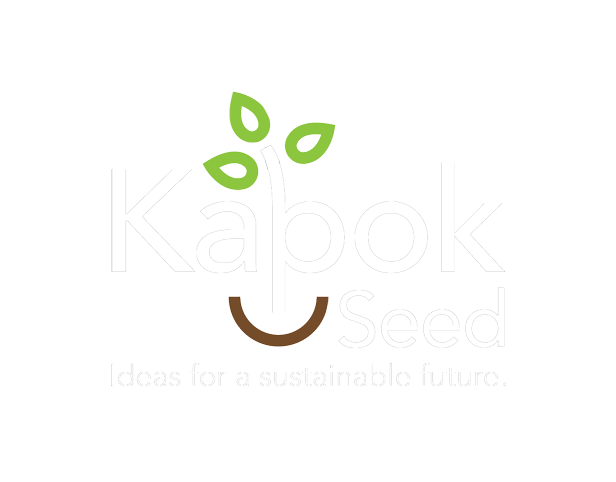The fashion industry has long considered leather as an elite fabric. From clothes to shoes to handbags, leather has been used in a variety of products for more than 7000 years. Made from animal hide, leather is a durable, wrinkle-free fabric that can take on many different looks and feels. With its rich looks, leather has secured a firm place in everybody’s closets. In 2020, the global leather goods market was worth around $394.12 billion and it is estimated to grow by an annual growth rate 5.9 per cent from 2021 to 2028.
The process of manufacturing leather, however, has a completely different story. Using the raw product of the meat industry in most cases, animal hide goes through several steps of processing before taking the shape of leather as we know it. In addition to the most obvious impact on environment and climate resulting from rearing cattle for dairy and meat, leather processing is considered to be a highly polluting industry. Tanning is the most polluting part of leather processing, because the chemical most often used in chromium. The process results in highly toxic chemicals being released into the water bodies. According to the U.S. EPA, 70% of water pollution in the US comes from factory farms.
There is a growing movement among consumers towards sustainable leather. Several researchers and entrepreneurs are exploring new materials that are sustainable and have the potential to replace leather. One such company that is working towards an alternate to leather is Malai.
Founded by Zuzana and Susmith in 2018, research on this new alternative began in 2016. Using coconut water as a base to grow bacterial cellulose, the team uses fibre from banana stem and other agricultural waste to produce a material that is sturdy, yet flexible, strong yet malleable. It is water-proof and yet compostable at the end of life. In texture, it bears the most resemblance to leather. Yet, it’s unique properties separate it from other materials. It is called Malai.
The Process
The team at Malai is inspired by the beauty and purity of natural materials. They aim to find solutions to problems created by conventional practices. They explored the use of two materials that are considered to be agricultural waste – the stem of the banana plant and coconut water from brown coconuts. In the South Indian state of Kerala, bananas and coconuts are grown extensively, and as such, these materials are available abundantly.
Their base ingredient is a natural polymer that is synthesized by the bacteria Acetobacter Xylinum that feeds on coconut water from mature coconuts. Once synthesized, natural dyes are added to give it some color, if so desired. This is then mixed with fibres obtained from the banana stem for strength and bound together with natural gums and resins. This results in a more durable and flexible material that can be made available in any thickness and as flat sheets or as 3D structures. Lastly, a water-resistant coating is applied to enhance the look and durability.
The process behind Malai. Photo courtesy: Malai
The final product is a 1 sqm sheet that resembles leather. This can be made with different colors and thicknesses to suit the end product.
Products and product lifetime
Malai is a robust material that can either be sewed or glued to make different products. So far, it has been used to make various products such as footwear, handbags, stool seats, cushions and other accessories.
Being a completely natural and vegan material, it needs some extra, albeit simple, care to maintain its look and texture. Coconut oil and natural wax help in maintaining the natural look and enhancing its lifespan. At the end of life, this product is completely compostable once the metal fittings are removed. Being a natural material, it can be added to the compost and is biodegradable. What can be more sustainable than that?
What is their core competency?
Malai specializes in researching natural and locally-available materials and analyzing them for their potential to be converted into usable materials and products. Some of the materials they test are coconut shells, coir, natural fibres, hemp and natural resins. They experiment with natural dyes and can develop variations in the material based on the quality of bacterial cellulose that is used.
Meet the Team
Malai was created by Zuzana Gombosova and Susmith C. Suseelan. Zuzana is a material researcher and designer from Slovakia, while Susmith is a product designer and maker from Kerala, India. Kerala is known for its coconuts and other natural fibres. So it is no wonder that Zuzana and Susmith decided to move to Kerala and start Malai. With a view that fashion is the second most polluting industry after oil, their goal is to come out with products that will disrupt the fashion industry and make it more sustainable.
What is their market strategy?
Malai is a self-funded organization, having a small manufacturing plant in Aleppy, Kerala, where they can manufacture around 200 sqm per month. Currently, they are targeting the sustainable fashion market with their totally vegan products. They have clients both in India and outside of India, who are mostly manufacturers of various leather products. In addition, they have a small accessory manufacturing facility, where they make products from malai, such as handbags and footwear. They make around Rs. 50 lakhs per annum of profit
What next?
On a constant improvement model, they are working on improving the mechanical properties of Malai to make it more sturdy. They are also looking to scale production by expanding the capacity of their manufacturing facility. However, they need funding for that and are on the lookout for investors.
For more details, please click here to access their pitch deck.
